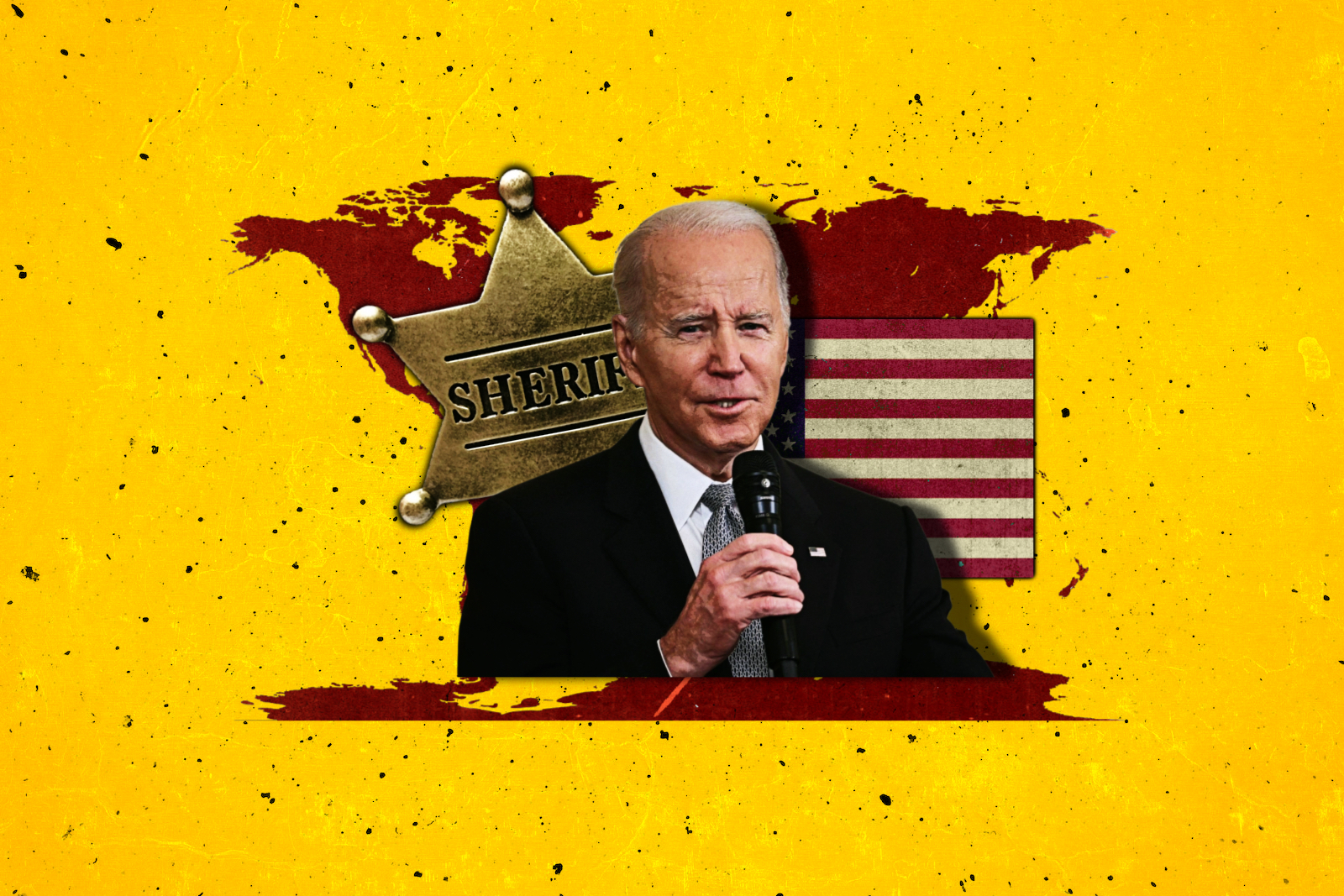
Can America Pull Back Without the World Burning Down?
For more than three decades, the world has enjoyed the most prosperous and peaceful time in its history. While conflicts would emerge, they would never rival the intensity of the Second World War. Under the global leadership of the United States, countries saw increased stability, innovation, and economic growth.
Yet, this era is quickly fading. Russia has set Ukraine on fire with its invasion in 2022, with no end in sight. The United States is losing its grip over the Middle East, marked by shifting regional alliances and an emboldened Iran. China is quickly displacing the international liberal world order with its soft and hard power, all while Taiwan remains under economic and military threat.
But while this is a period of uncertainty, it’s not as dire as we’re led to believe. Russia’s invasion has culminated in the failure to completely overwhelm Ukrainian forces, and China is more concerned with COVID, political unrest, and the economy than anything else. Iran is emboldened, but it is still more of a regional power than a global one, and other actors in West Asia are stepping up to curb growing escalation. Thus, America is at a crossroads between maintaining the international world order it has built up over the past three decades or, unfortunately, slowly diminishing its resolve to defend this system.
The past two American presidents recognized this problem. Barack Obama began a shift towards China early on with his “Pivot to Asia,” illustrating a concern for containing a rapidly growing China. His pullout from the Middle East signified a desire to undergo a strategic shift in American national priorities and a failure to fully disengage, as was proven with Libya and Afghanistan. And under Donald Trump, American foreign policy recognized the dual threat of an aggressive Russia and China but had no clear strategy to counter them.
Even more so, Trump set American credibility on fire. After the pullout of the Paris Accords and the condemnation of NATO, many European and international countries felt the heat of an isolationist United States. This issue sparked a new wave of isolationist tendencies and authoritarian pushback. Accordingly, Joe Biden’s era of American foreign policy is now delicately balancing the isolationism of America and the urgency to protect the liberal world order.
So, what should America do? There are two options for Biden and future presidents. First off, America cannot do everything at once. That much is clear. Policing the entire globe has cost Americans trillions of dollars, all while undermining U.S. credibility. Washington and Jefferson understood this, and so have the past three presidents. Second, the government must address America’s domestic troubles: inflation, a weak manufacturing sector, climate change, polarization, and populism are all issues Washington needs to face head-on to reassert itself within the globe. Empires before us have all experienced a relative decline, but time and time again, the ones that prevent terminal decline are the ones that address internal problems.
There are three key strategies against overstretch.
Retrenchment
This strategy is on the extreme end of the American foreign policy spectrum and calls for a significant reduction in international involvement. The U.S. would lower military spending, redraw troops from hotspots to prevent entanglement, commit less to international agreements, and begin to focus the majority of resources on the American public. The fight in Ukraine today would not be a key priority, nor would be defending Taiwan. This strategy is difficult to imagine given America’s long history of preserving its alliance system and upholding U.S. credibility.
Yet, a slight shift away from internationalism is possible. Afghanistan proves American people have the political will to redirect resources away from America’s periphery. This strategy does not have to be necessarily cataclysmic like it was in Afghanistan, either. The only test is if the United States can retrench without other allies and adversaries losing faith in the American-led order.
Offshore balancing
Offshoring recognizes the potential to leverage Washington’s international clout. Instead of detracting from the international world order, the U.S. would call on allies in a process called offshore balancing. South Korea and Japan would gradually acclimate themselves as regional hegemons to curb North Korean and Chinese escalation, Israel in West Asia to combat Iran, and regional actors in Eastern Europe to secure Ukraine. While this would preserve the liberal world order to a certain extent, it would require key sacrifices that Washington would be uncomfortable with, such as giving up the reins on allies and trusting them to stop adversarial escalation.
However, if executives sense that America’s days are numbered and it has entered a phase of terminal decline, choosing this option might be critical to preserving American strength in the long term. The question then would not be about protecting the international liberal world order in the short-term—such a downturn may be inevitable— but rather about giving the U.S. the best ability to reassert itself later in a more dystopian and authoritarian order.
Sequencing
A unique perspective among foreign policy experts on countering overstretch is acknowledging that incentives to preserve the international liberal world order and the capacity to do so are simply mismatched, understanding that the U.S. cannot catch up to each threat in every military and political theater. Instead, the U.S. would still need to invest more in its domestic capacities, such as the economy or military, but preserve its strength at the right place at the right time. Policymakers would recognize that the war in Europe is an immediate threat in one Western theater and that an eruption of tension in the Middle East may not happen until years later, especially with recent developments in regional diplomatic agreements and a new détente between Saudi Arabia and Iran.
An invasion of Taiwan may happen decades down the road and likely requires a much different economic and military response than Ukraine, allowing executives to leverage America’s diverse field of military technology and expertise for different situations. If the United States is wrong, though, it could mean Armageddon. Washington cannot handle the war in Ukraine with an emboldened Iran and an assertive North Korea, all while paired against a potential war in the South China Sea.
The United States may choose a strategy of all three: exploiting flexibilities in the international order, calling on allies, and reducing commitments. This approach would give America the maximum time and resource flexibility to stop calamity. However, one thing is clear: on the current track, the liberal world order will be set on fire. America must invest more in its nation domestically to address internal plights and plan strategically to mold the new world order
We are already witnessing the slightest pivot in the international world order. In a couple of decades, we will find out whether it has collapsed or become stronger than ever.
